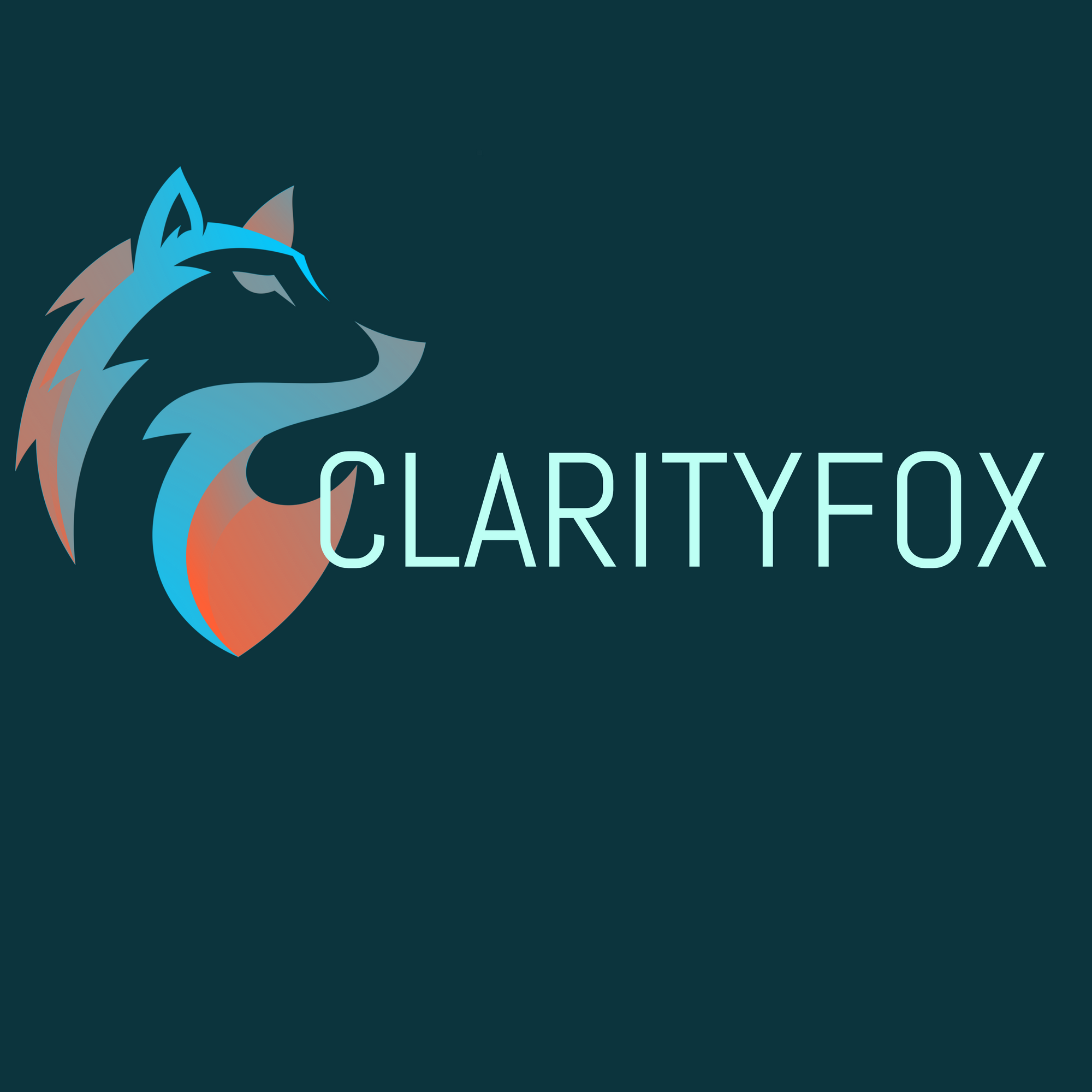Self doubt is a real thing, but there must be a point at which people are confident enough in their thoughts to express them. Otherwise the world would stand still, and we would all be waiting for the perfect amount of insight and knowledge before we share our thoughts with the world.
It is always possible that people who have shared truly useful things may have had a level of knowledge and insight that we can't even understand. No doubt the most interesting and useful thoughts are those that have been considered and given time to bloom in the mind of their authors. There must then be a balance between uncertainty and confidence, where certain mental heuristics are used to determine when it's time to express your ideas.
So for this blog I've decided to create one for myself and to update it and improve it as I go. This is kind of a disclaimer that no matter how much one reads and learns about at topic, you can never know everything - and sometimes value is derived from even the most basic look into a topic. Scraping the surface and piquing someone's interest is desirable in and of itself.
1. CHOOSE A TOPIC
This may seem obvious, but the first step is to choose a topic that is compelling. I have this strange habit of being drawn to questions of seemingly little relevance to anyone's life, but has some kind of intellectual appeal (even if it's just to me). Hopefully this blog will allow me to pursue some of these silly things and give me a platform to discuss and refine my ideas.
Topic Criteria
For me, there really is very few areas that I wouldn't find interesting, but obviously there are some subjects where the cost to entry is too high at present. So I'll start with topics that appeal to my current interests and go from there.
2. WHEN DO I KNOW ENOUGH?
I think the answer to this question is really the theme of this whole post: how do we gain enough confidence to overcome self-doubt and release our ideas into the world? It's useful then to approach a topic in a somewhat obvious way:
Question -> evidence -> conclusion (let's call this the QEC method).
The Question is derived from point 1 above. Choose a topic in which there is something to answer, even if there is no explicit question, forming one for yourself assists in creating a coherent narrative in which you can create a foundation for your confidence.
Say your topic is that you want to write a post on World War 2, specifically the events of the Battle of the Bulge. There must be a reason why you want to discuss this event; a reason why this particular battle or WW2 in general interests you. Your implicit theme can then be a question related to this why. So for the example above, say your area of interest is something like, "pivotal battles of World War 2." Your question can then be "why was this battle so important to the eventual outcome of the war?" From here you can includes points like, "what were the objectives of either side?"; "What were the potential outcomes?"; "What did the actual outcome lead to?"
But of course answering those questions would constitute evidence that answers your main question and highlights the purpose of discussing your topic. Your evidence may also support or oppose your hypothesis about the question. And this is why the evidence part is where the most self doubt can come in, because there is no way to know everything about a topic, so it is important to obtain as much evidence and do as much investigation as you can. If you choose a topic of sufficient interest you will find this to be less of a problem then it appears.
But also, the final step of the process, the conclusion, is where you can evaluate your confidence level about your topic. If your conclusion makes sense in light of your theme question, and the question is answered sufficiently, then you can be fairly confident that you have at least done enough to justify your topic of discussion. This does leave us with one more question though, and that is how do we know we have actually answered our question?
3. ANSWERING A QUESTION
This is getting a bit meta since we're answering a question about answering a question. But here we go. So, let's try and determine what a question is and see if we can go from there. So a question is "a subject or aspect in dispute or open for discussion." This seems like a good starting point, most certainly our purpose here is to discuss our topic, and we have employed the QEC to allow us to discuss the topic in a meaningful way. But does this definition tell us anything about answering a question? Not really, but perhaps this hints to us that we do not necessarily have to have an answer.
This seems to provoke a little bit of anxiety in me, but I can see that pursuing an answer or the sake of it is not ideal. It is perfectly reasonable to not always have a definitive answer, if we have contributed to the discussion in a meaningful way. But what we are looking for is when are we confident to say something on a topic? And we were using the QEC method as a basis for this, however now I am saying it is okay not to answer the question, which seems to undermine the whole method as a way of gaining confidence. But I don't think that's true, so in light of this the QEC method might need a bit of an update. How about:
question->discussion->conclusion (QDC method).
The conclusion though, is not a final word on the topic. The conclusion is more like an evaluation of the discussion points based on the question, and offers us the opportunity to move forward with the topic and update our understanding in the future.
4. CONCLUSION (for now)
We will leave it as QDC for the time being, with the understanding that the conclusion is not final, but rather represents more of a mental update based on the discussion. The conclusion is also where others can access our thoughts on a topic and use those for further discussions. The most important thing here is not to search for a correct answer to a question, but rather the goal is to provide a medium through which we can all move towards a better understanding. We can never know everything on a given topic, we can only engage in the discussion with an open and honest mind. If everyone did this we could all pursue our areas of interests in a fulfilling way.
ClarityFox pursues interesting ideas and thoughts from many different areas.
Signup for free to join our community and follow us on Twitter to be a part of the discussion.

